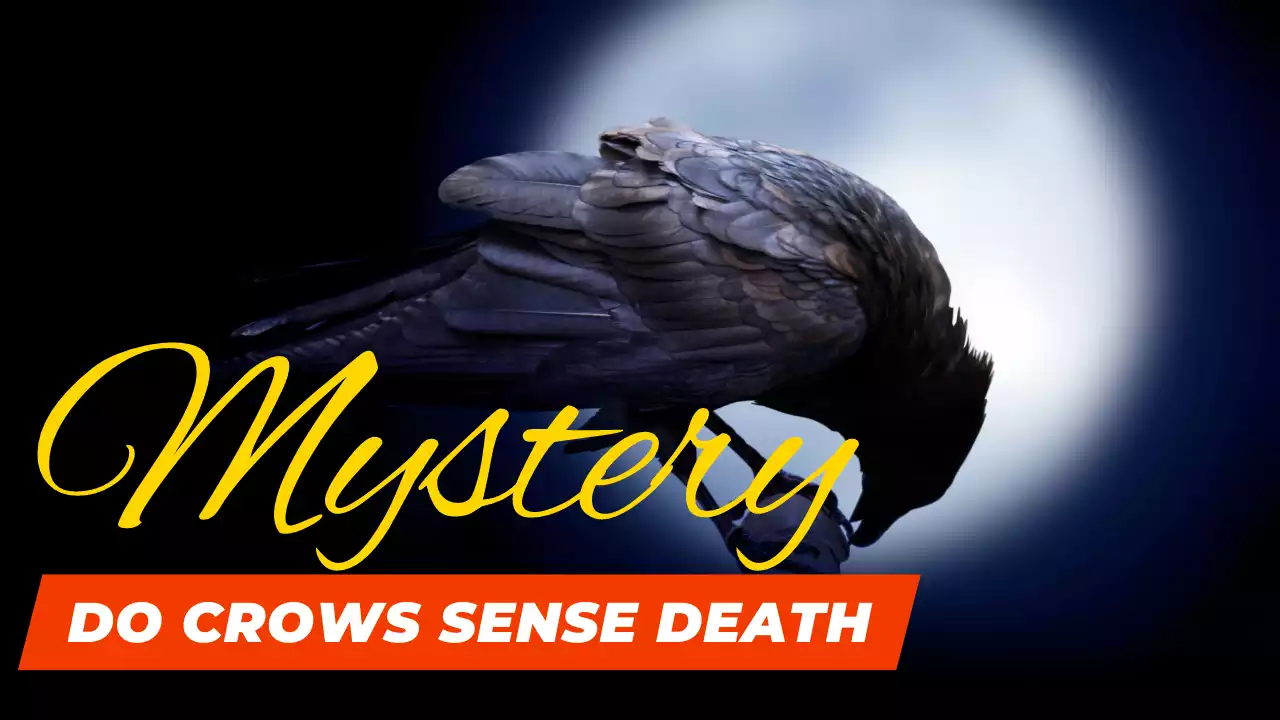Crows are arguably the smartest birds in the world, and they are known for their cunning and resourcefulness. But did you know that they also have a dark side? These intelligent birds are known to be omens of death, and they have been associated with death and the underworld in many cultures throughout history.
In some cultures, crows are considered to be bad omens. If you see a crow flying alone, it means that someone is going to die. In other cultures, crows are associated with death and the underworld.
However, there is no scientific evidence to support the claim that crows can sense death.
So, let me give you this one: Crows aren’t psychic. They are just, well, black birds and they don’t know anything about your future, nor they can detect death. Crows just watch over animals that seem ill or injured. Once they see someone collapse, they wait patiently before feasting on the carcass.
People search for meaning everywhere they look – but sometimes, there just aren’t any answers. So instead of trying to find something meaningful in everything around us, let yourself experience life fully and enjoy whatever moment brings joy into your heart today.
Now, I think we can all agree that crows are pretty creepy. But why?
There are a few reasons:
- They’re all black, which is traditionally associated with death and the underworld.
- They’re scavengers, so they often eat carrion (dead animals).
- The way they act around dying things is pretty unnerving.
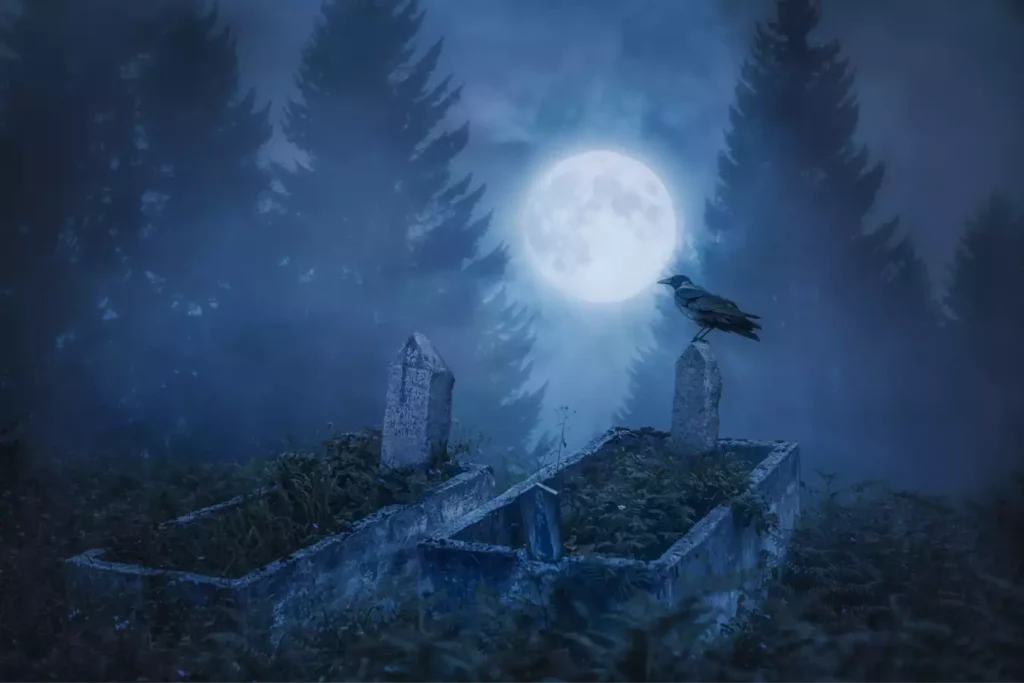
Do Crows Sense When People Die?
Although crows are often seen gathering around gravesites, they aren’t able to detect impending deaths, but they do seem to recognize funerals.
However, Crow folklore has been around since ancient times. They were thought to bring bad luck, but they could also mean something else entirely. In some cultures, crows were considered to be messengers from the underworld. In others, they were seen as omens of death.
So, while there is no evidence to support the claim that crows can sense when people are about to die, the bird does have a long history of being associated with death and the afterlife.

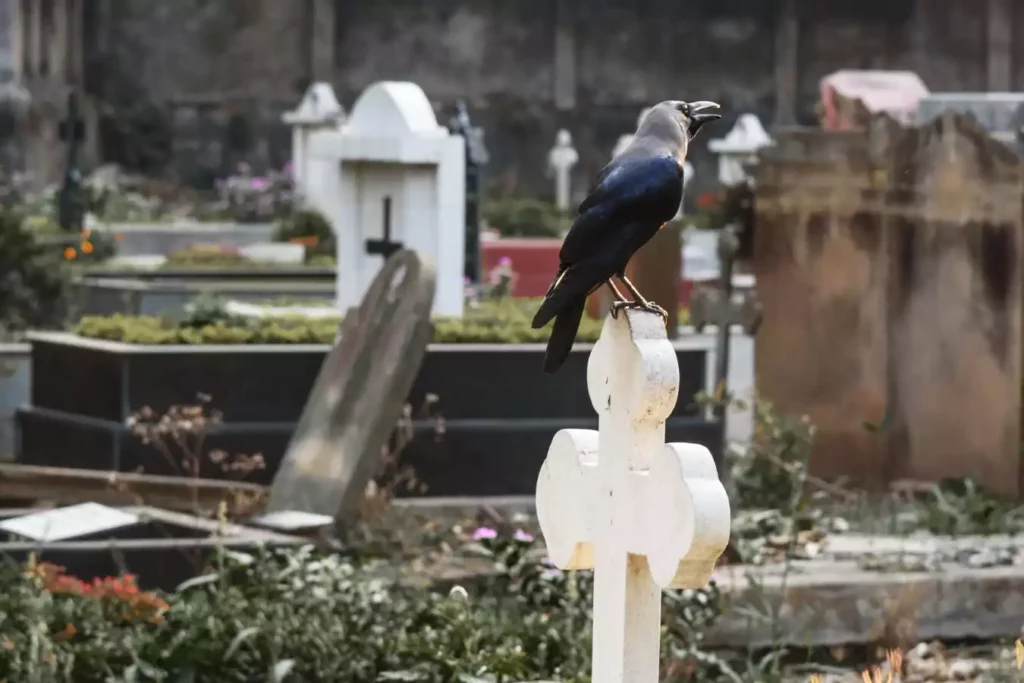
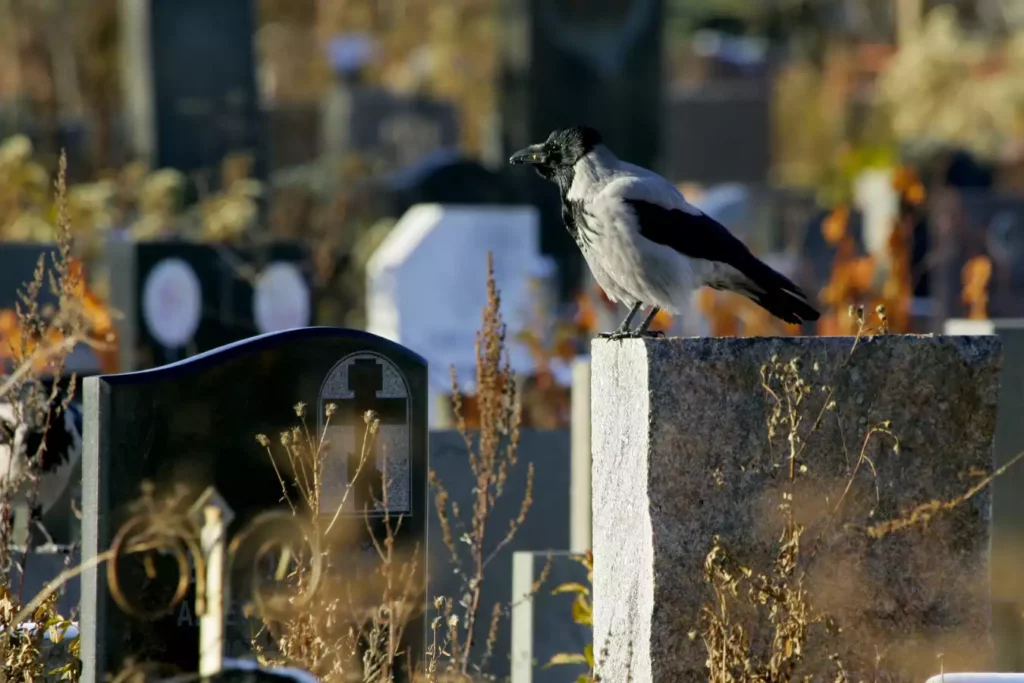
Crows don’t just gather at these sites; they actually participate in services too. For example, during memorial ceremonies, crows sometimes fly through clouds of smoke released into the air.
These actions appear to serve as a way for the crow community to pay its respects.
Why Do Crows Show Up When Someone Dies?
Crows don’t actually bring bad luck; they’re simply following nature’s laws.
Crows do like to gather around places where dead animals lay, but sometimes they’ll find something else interesting too — maybe a tasty snack left behind after a picnic?
Either way, it’s not because they have a sixth sense for knowing when someone has died.
They only follow their instincts, doing whatever feels comfortable at any given time.
Crow burial has been practiced since ancient times. They feast upon dead animals.
However, they do not eat humans but rather scavenge off decaying flesh. People believed that crows took souls into heaven.
However, there is no evidence supporting these beliefs. They only serve as superstitions passed down through generations.
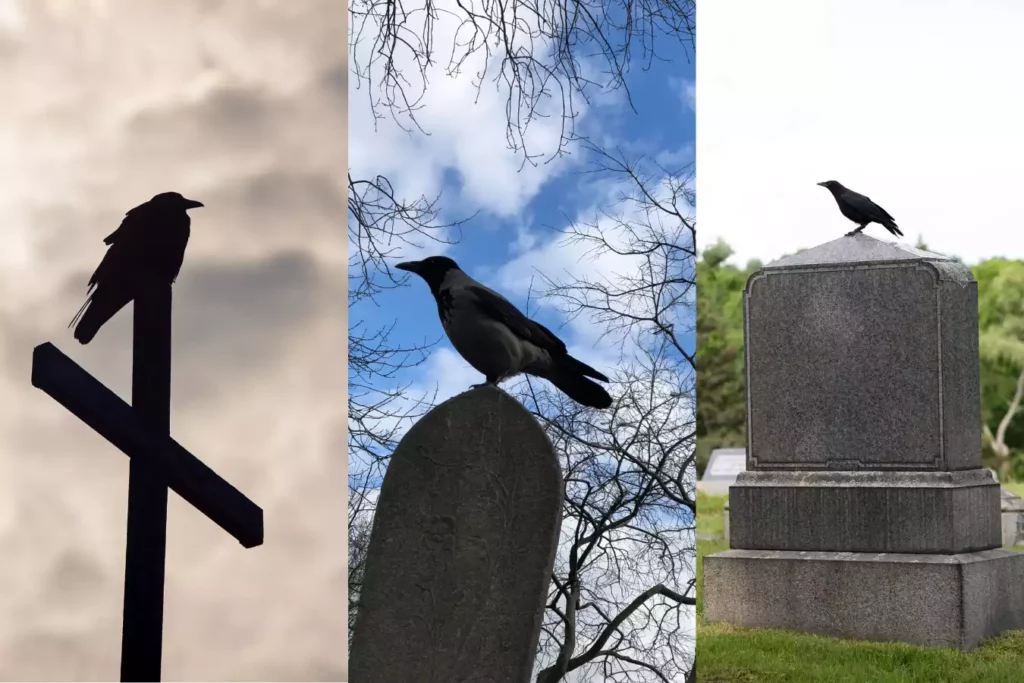
Does Crow Sense Danger?
Carrion-eating birds include ravens, buzzards, magpies, falcons, hawks, and bald eagles.
These scavengers feed mostly off animal carcasses but sometimes consume human corpses too.
Crows are often seen near graves and graveyards due to their habit of gathering at places where there has been recent death.
Crows can “detect” death and danger from a long distance. They are attracted to the smell of blood and rotting flesh.
Once they locate the body, they begin calling out to each other and gathering near the corpse. Crows often leave food offerings after finding human remains. However, these gestures do not necessarily indicate respect.
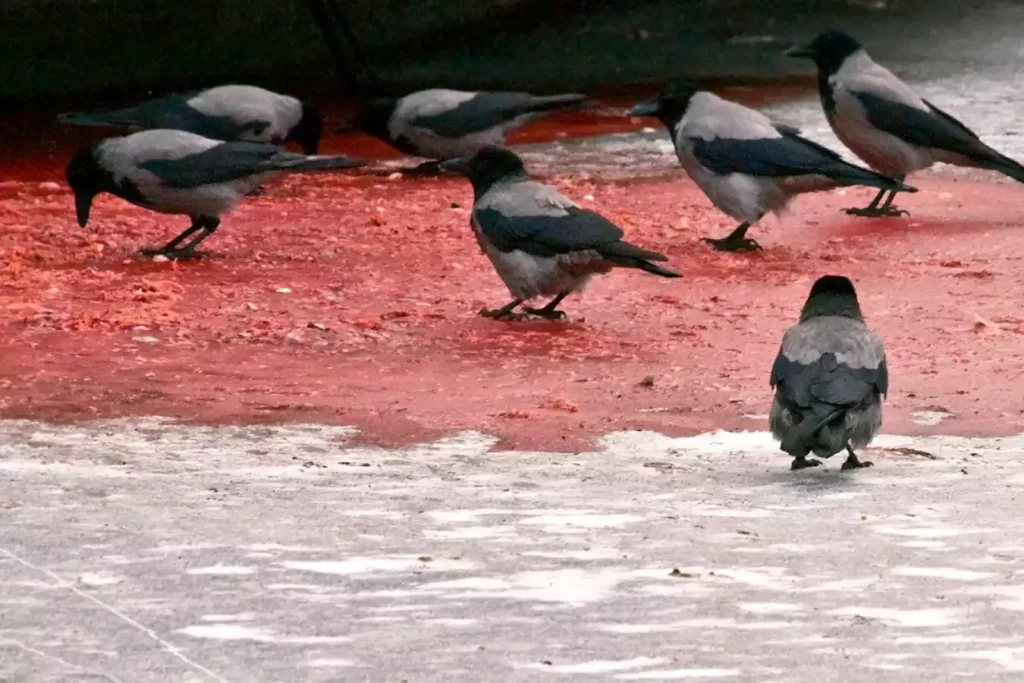
Sometimes, crows eat parts of corpses before leaving them alone. These birds sometimes become aggressive towards humans during mourning rituals.
Are there any scientific explanations for why crows can sense death
Crows are extremely intelligent bird species, and they are able to communicate, recognize various faces, and even understand human speech.
They’re also very well-known for their ability to distinguish between living and dead bodies, which has led them to be considered “death omens” by many people in the past.
The idea of crows being associated with death was first introduced in 1796 by an English scientist named John James Audubon. He said that he’d seen thousands of crows gathering around a freshly dug grave on his travels through Europe, and they would fly away when they saw him approaching.
In fact, Audubon’s observations were later confirmed by more than one hundred eyewitnesses. Many people believed that crows showed up where there was death because they knew something was going to happen, like an accident or a murder.
In some cases, it can take only seconds before a crow will fly over the site of a crime and then disappear.
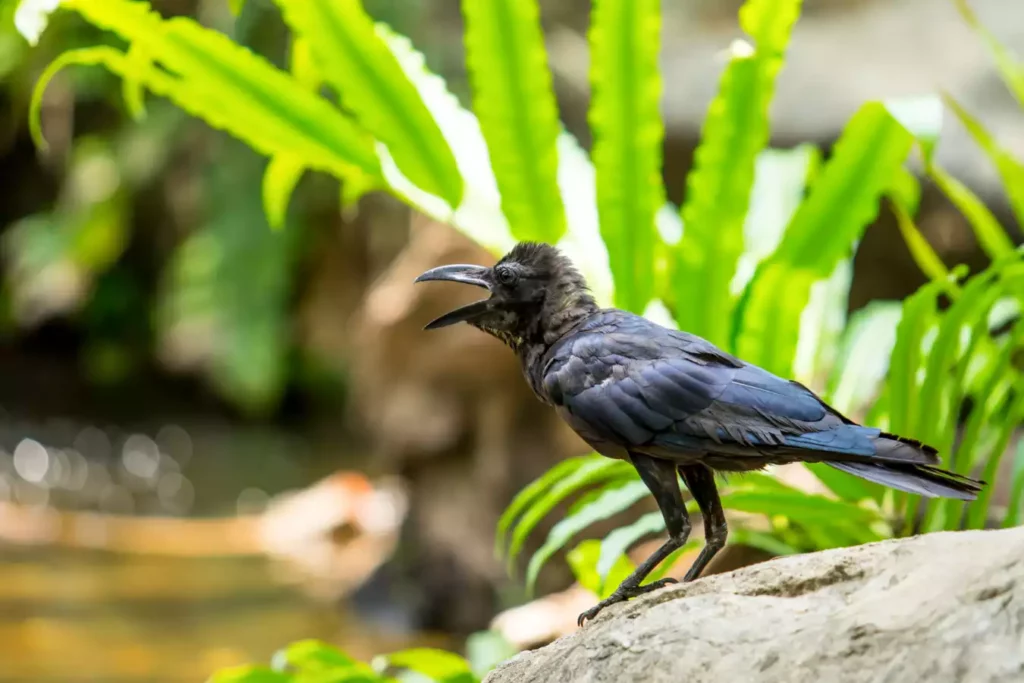
Another person who noticed this phenomenon was the famous naturalist Charles Darwin. He was born just after the publication of Audubon’s book, and he wrote in The Descent of Man that crows would often visit the houses of those who died suddenly or unexpectedly.
Darwin thought that these birds might be picking up on the energy from the deceased, which is what caused them to gather at the scene of a crime and then leave when they sensed danger.
This belief came under scrutiny in the 1920s when scientists discovered that crows actually avoided places where there had recently been accidents or violent deaths. So, it seems that there isn’t anything about crows that makes them so sensitive to death.
However, there is another reason why crows show up near dead bodies.
Crows love carrion, and they’ll scavenge on dead animals and humans as soon as possible.
If they don’t get their fill of food quickly, they won’t survive long enough to reproduce. As you might imagine, this behavior means that crows could be a good indicator of disease and infection in the area.
What Are Some Of The Myths And Legends About Crows
Although crows are often thought of as nothing more than blackbirds or ravens, they actually have a long and storied history in many different cultures.
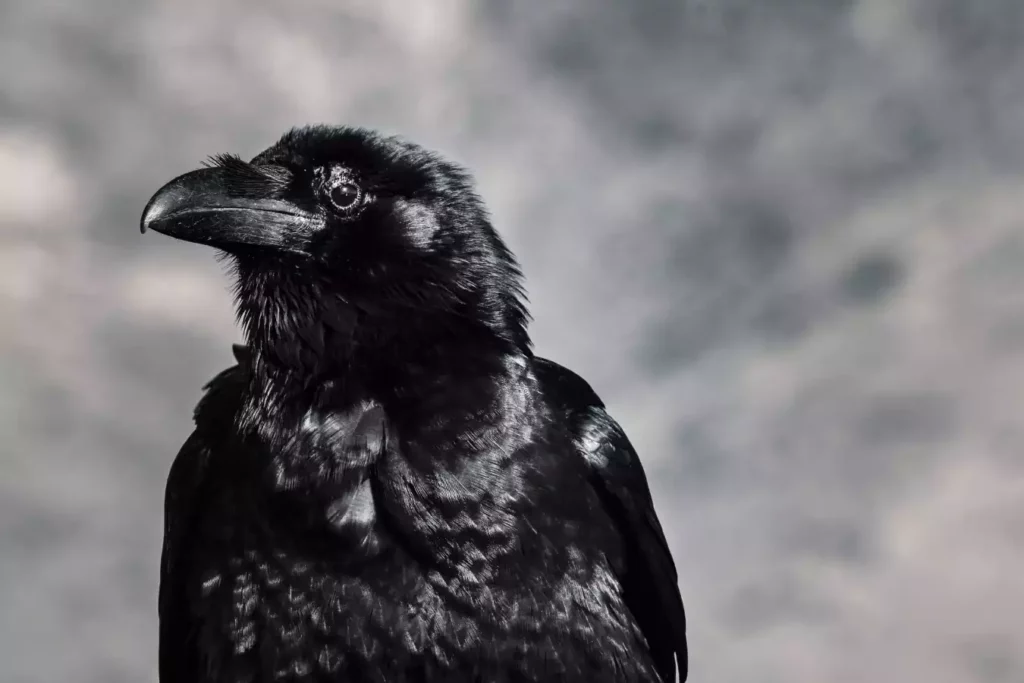
So here we’ve come up with a list of five myths and legends about crows.
They are omens of death
In ancient Greece, it was believed that crows were omens of death because of their ability to fly over dead bodies. They weren’t there when the person died, so this must mean they could tell when someone is going to die.
They’re part of a family of birds called Corvids
Crows belong to a group of birds called corvids (crow-like). They include ravens, rooks, magpies, jays, and jackdaws. They all look similar in size, shape, and color, but they’re not related at all. The only thing they have in common is their intelligence.
They Can Recognize Your Voice
It’s true! If you call out “hello” to a crow, it will respond. They use sound to communicate more than other animals do. Because of their omnivorous diet, crows are also able to identify food by its smell.
They Have A Dark Side
Even though crows live around humans in cities, they don’t always act like friendly neighbors. Some people say that crows don’t mind being near manmade structures such as buildings, bridges, and tall trees. Others say that crows will attack them and even kill them sometimes.
Do Crows Have Opposable Thumbs?
Well, according to legend, crows do have opposable thumbs, but they’re not very good at using them. There are conflicting reports on whether or not they actually have opposable thumbs, but scientists believe that all four-fingered birds evolved from two-fingered ones. So, maybe crows should stop bragging about their abilities and start working on their weak points instead.
How Does The Crow’s Power Affect People’s Lives
Crows are often thought to bring bad news such as death, or they’re seen as omens of death. In fact, there are several stories that associate them with death and the afterlife.
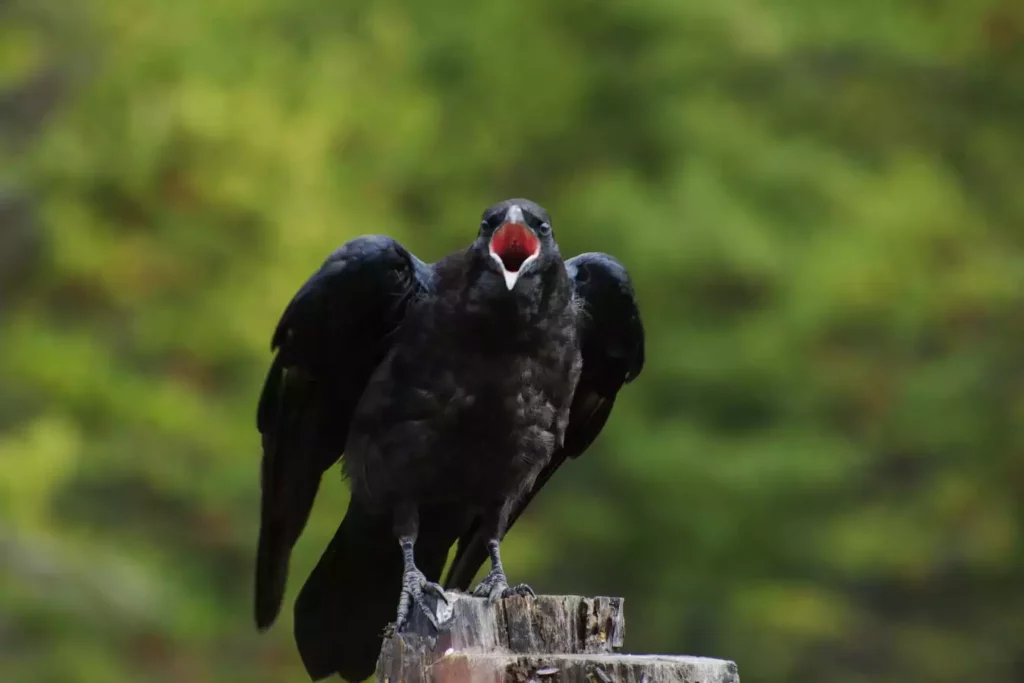
- In ancient Rome, it was believed that if a crow appeared on your roof during the night, then you would die within a year. This belief is still held by some today.
- In India, it is believed that if a crow lands on your head when you’re going to a funeral, it’s a sign that you will meet your own demise soon. However, if you see an angry crow before the funeral, then it means that someone close to you will die soon.
- In the Philippines, it is said that if a crow appears at your home while you’re preparing for burial, then it means that you will die soon after that day. The same goes for a crow hopping around the grave site of a recently buried person.
- In New Zealand, if a dead body were found near a cemetery where crows had perched on the tombstone, then it meant that the person had been murdered.
Crow Intelligence Is No Joke
Crows are especially intelligent birds and may communicate with humans using specific calls, but sometimes they use language by imitating human speech.
They are also believed to use tools and may even make nests. There have been documented cases of crows building their own homes out of sticks, twigs, leaves, grasses, and other natural materials.
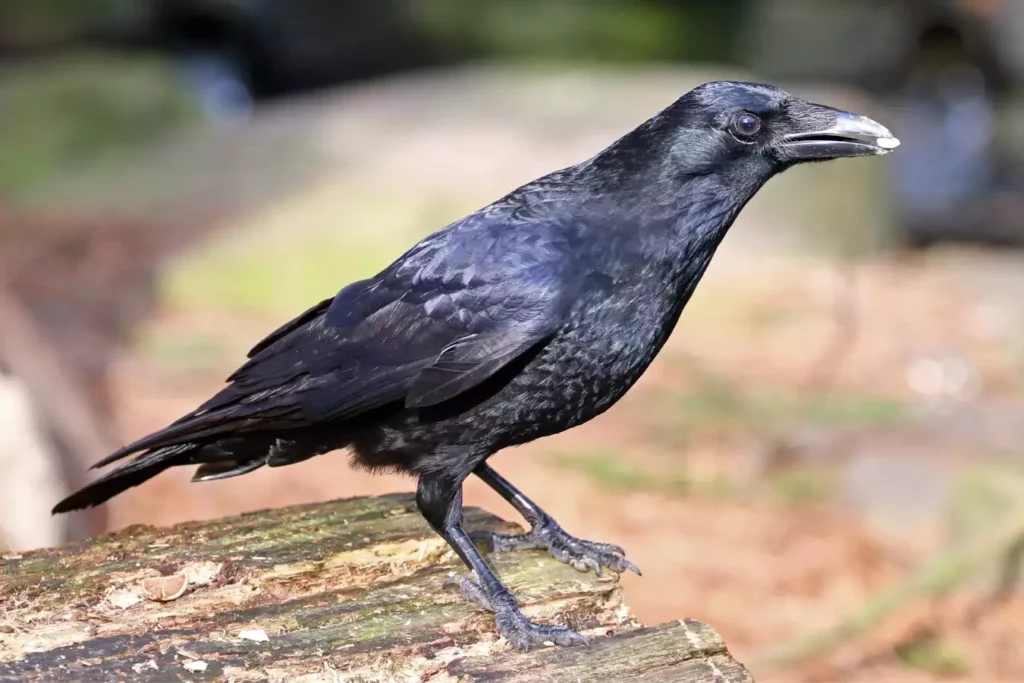
Sometimes they may build tunnels or even bridges through trees to get around their territory.
Since they are so intelligent, crows can be trained to do tricks, and they have been known to learn how to open latches, turn lights on and off and more.
If you’re thinking about keeping crows as pets, then you might want to think again because they can be quite stubborn and hard to manage.
In addition to scavenging for food, crows are also social birds.
They tend to live in groups of up to 50 birds and form large flocks in times of danger. When crows fly together, they usually follow a leader and lead the group in flight formation.
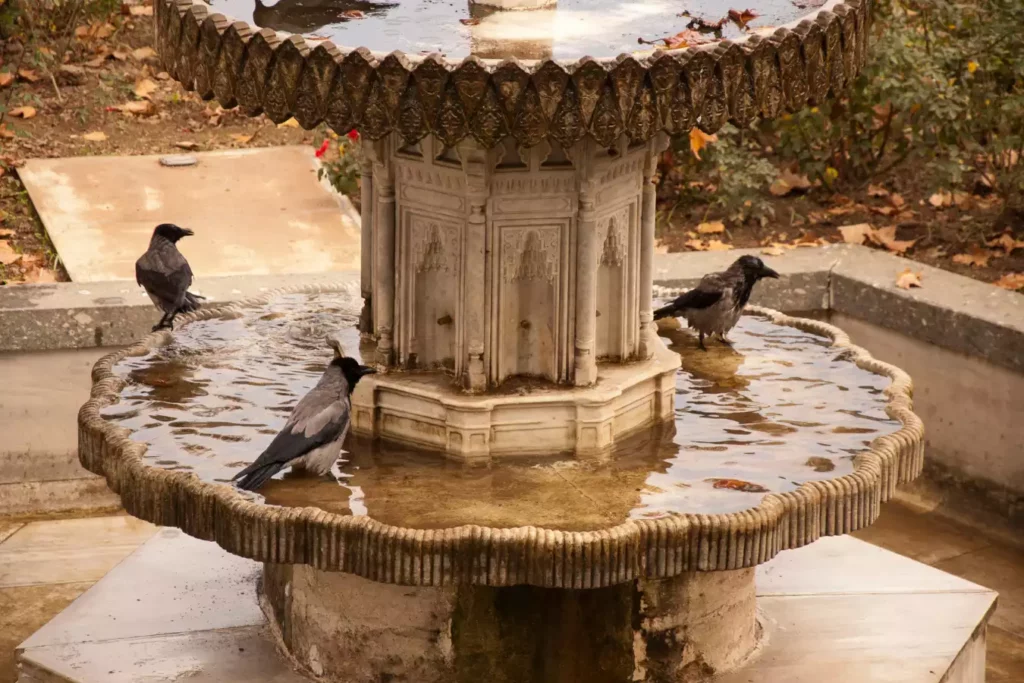
They also have a distinctive alarm call that they use to warn each other of danger or possible predators.
Another characteristic of crows is that they make loud noises during certain times of day. For example, when they’re hunting at night, they make a loud noise to scare off prey like insects, mice, and snakes. The sound is made by vibrating their wings against each other.
Conclusion
Crows or ravens aren’t actually predicting someone’s demise; rather, they’re just looking forward to feasting on dead animals after the fact.
These scavengers wait until there’s enough decomposition happening before swooping down to feast upon any leftovers.
Thank you for reading! I hope this article has helped you understand crows a little bit better. If you have any questions, please feel free to ask in the comments section below.
